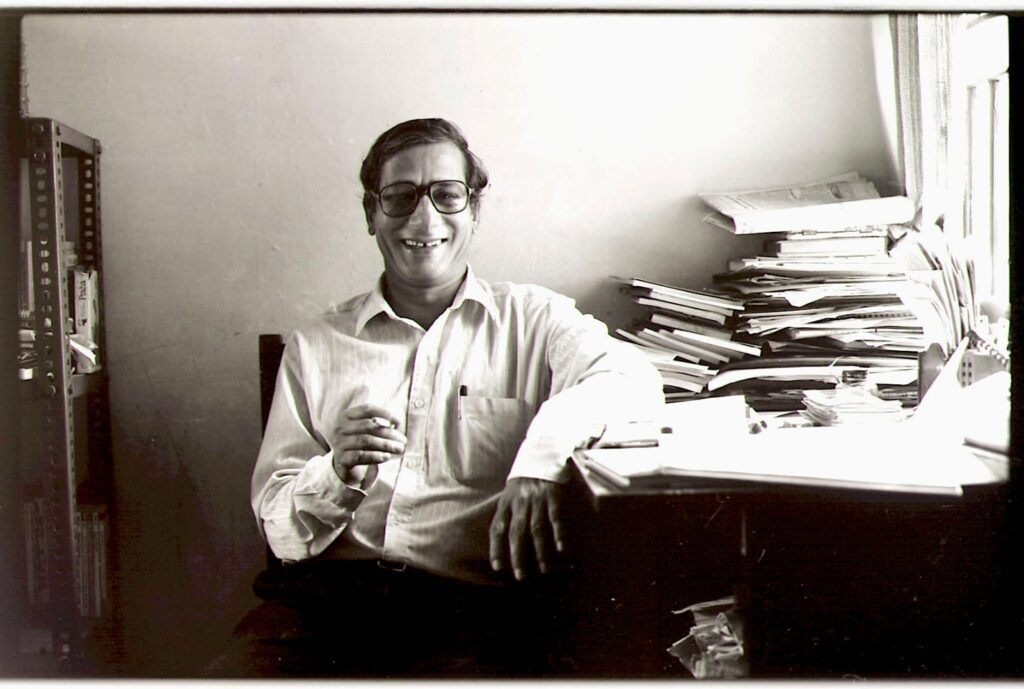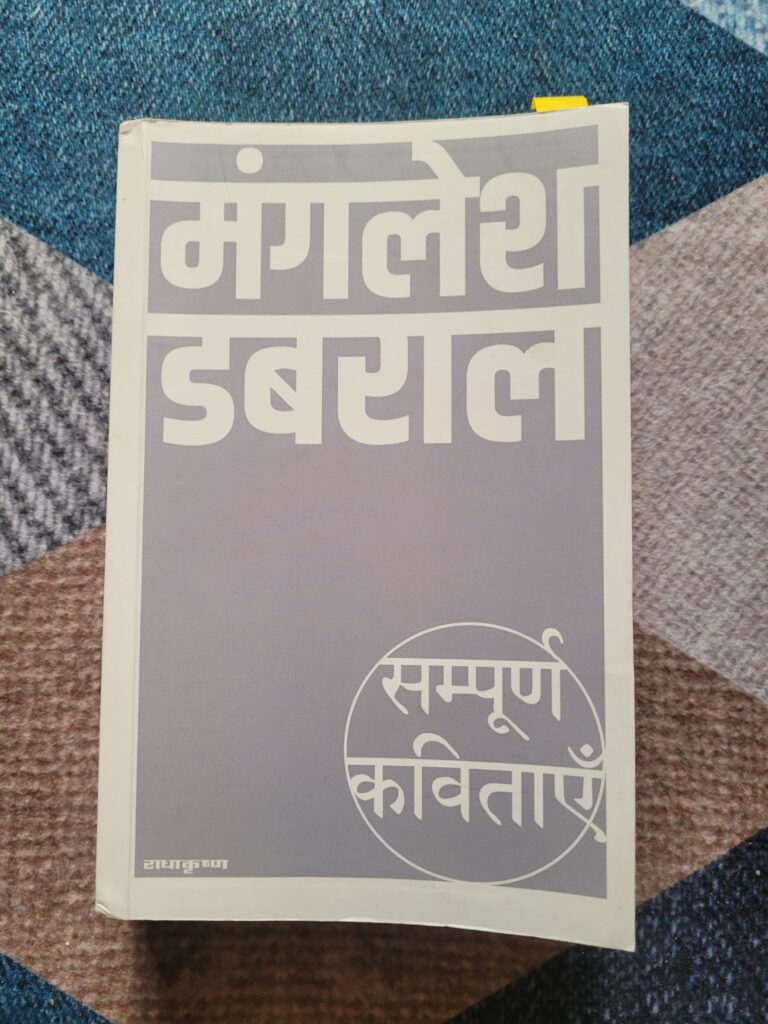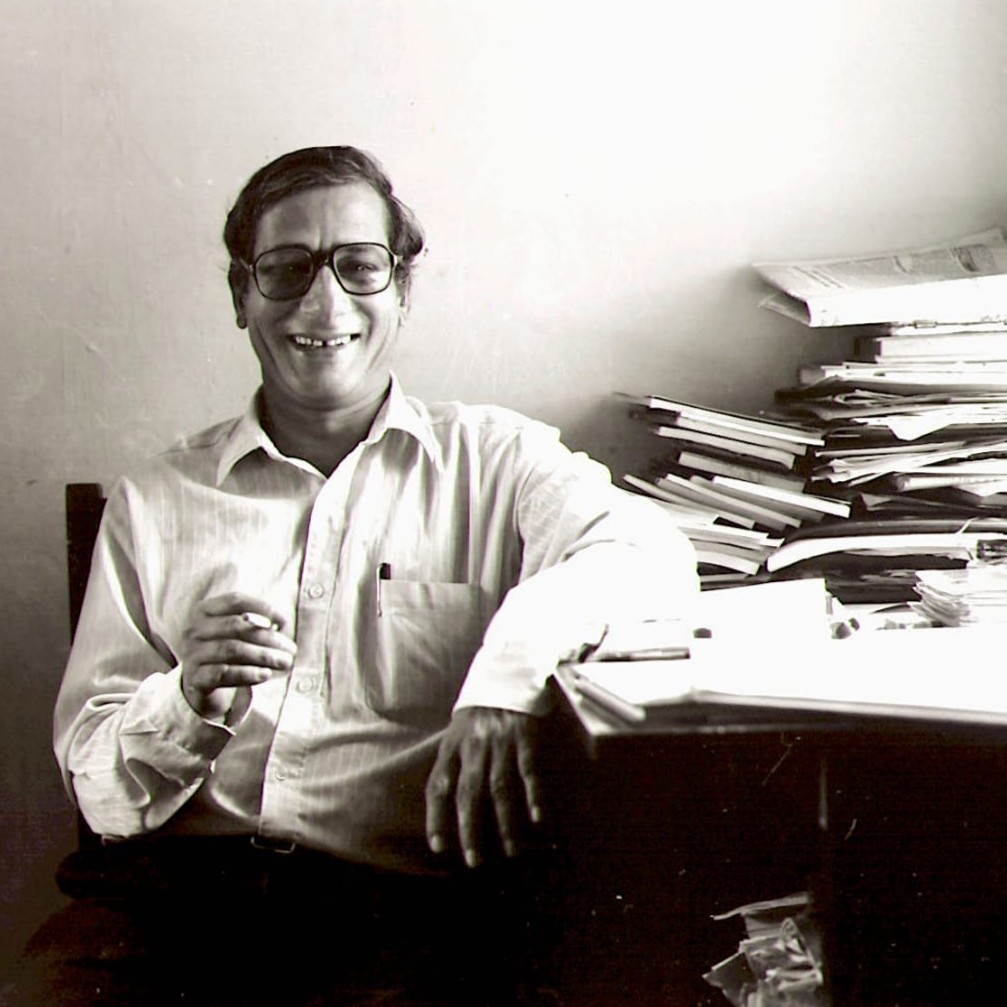Nisarg Patel
Manglesh Dabral (1948–2020) was one of the central Hindi-language poets of 20th-century India. Having written five collections of poetry, two collections of prose, and a travel diary, he was the recipient of the Sahitya Akademi Award, India’s Academy of Letters, for his collection, Ham Jo Dekhte Hain (Radhakrishna Prakashan, 2000).

Dabral wrote in deceptively simple yet precise language. His poetic sensibility, which comes across as modest and humble in its ambitions, inquired into some of the most pressing questions of postcolonial India. Ranging from social themes like that of postcolonial modernity that blinds itself to its own past, to themes of personal memory, the experience of displacement, and the unending longing for home, Dabral’s poetics embraced a vast spectrum of human emotions.
The four poems translated here are perfect representations of Dabral’s poetics—in their language, their form, and the themes with which they engage.
City-I
I looked at the city and smiled
How could anyone live there
I went to inquire
and never came back.
Delhi-II
On roads[,] in buses[,] in meeting rooms[,] in such big crowds[,] no one says, “today I remembered few lines of Nirala’s poems.” No one says “I have read Nagarjuna.” No one asks “how did the knowledge of mukti* die?”
Someone says, “I have made a lot of progress.” Someone is happy that he has found a vacant seat on the bus. Someone says “This society[,] why does it not listen to my dictates.” Someone has seen the whole of one’s future. Someone says, “Look how I make my way.”
Someone says, “I am poor. With me[,] I have no other words.”
*deliverance
The House
This house has hidden everything
within its darkness a woman
women’s dream
women’s children
women’s death.
Love
He was some renowned Mir*
who said love is one heavy stone
how could it be lifted by a weakling of your like
I thought
I could lift it in parts and pieces
But then how would it be love
it would be an act of massacre.
*Leader, or a Chief. Also, a Muslim title of the Saiyyids, the descendent of Prophet Muhammad.
Hindi Originals
शहर : एक
मैंने शहर को देखा और मैं मुस्कराया
वहाँ कोई कैसे रह सकता है
यह जानने मैं गया
और वापस न आया।
[1974]
दिल्ली : दो
सड़कों पर बसों में बैठकघरों में इतनी बड़ी भीड़ में कोई नहीं कहता आज मुझे निराला की कुछ पंक्तियाँ याद आईं। कोई नहीं कहता मैंने नागार्जुन को पढ़ा है। कोई नहीं कहता किस तरह मरे मुक्तिबोध।
एक कहता है मैंने कर ली है ख़ूब तरक़्क़ी। एक ख़ुश है कि उसे बस में मिल गई है सीट। एक कहता है यह समाज क्यों नहीं मानता मेरा हुक्म। एक देख चुका है अपना पूरा भविष्य। एक कहता है देखिए किस तरह बनाता हूँ अपना रास्ता।
एक कहता है मैं हूँ ग़रीब। मेरे पास नहीं है कोई और शब्द।
[1988]
मकान
यह मकान सारा कुछ छिपाए हुए है
अपने अंधकार में औरत
औरत का स्वप्न
औरत का बच्चा
औरत की मौत।
[1975]
प्रेम
वह कोई बहुत बड़ा मीर था
जिसने कहा प्रेम एक भारी पत्थर है
कैसे उठेगा तुझ जैसे कमज़ोर से
मैंने सोचा
इसे उठाऊँ टुकड़ों-टुकड़ों में
पर तब वह कहाँ होगा प्रेम
वह तो होगा एक हत्याकांड।
[1983]

Nisarg P. [નિસર્ગ પી.] thinks, writes, and translates literary works in and between Hindi, Gujarati, English, and French.
Photos by Nisarg Patel



